Smart motorway deaths: Coffins protest takes place in London
- Published
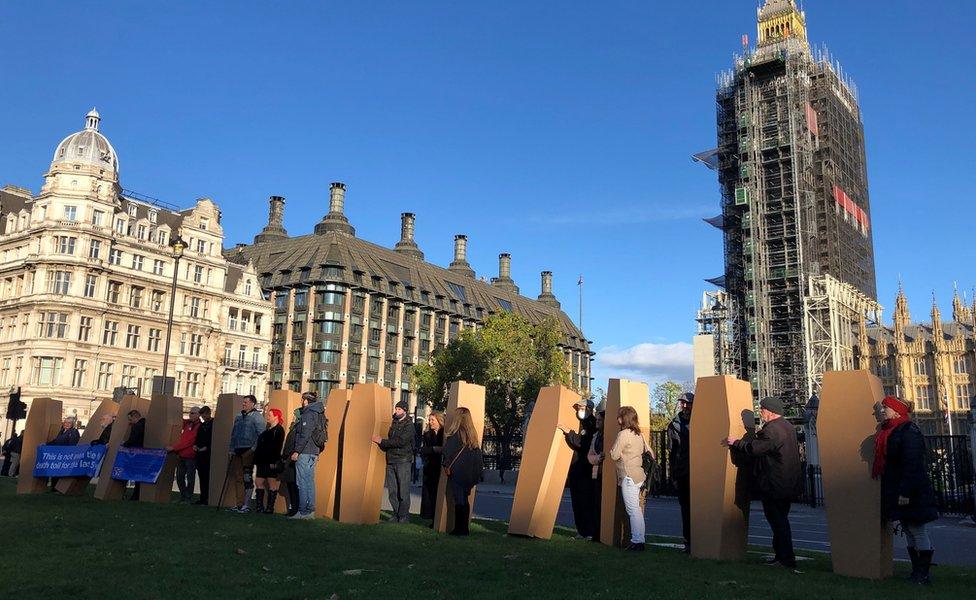
Protesters carried 38 cardboard coffins across London's Westminster Bridge to Parliament Square then on to Horseferry Road
Protesters have carried cardboard coffins to the Department for Transport's headquarters to demand the scrapping of smart motorways.
The London protest was organised by Claire Mercer, widow of Jason Mercer, who was killed on the M1 near Sheffield in 2019 when he was struck by a lorry.
She said the 38 coffins represented the official number of those killed on smart motorways between 2014 and 2019.
The government said a new "raft of measures" would improve road safety.
About 50 demonstrators marched from the London Eye to Horseferry Road to demand a ban on all-lane running (ALR) motorways, which can convert the hard shoulder into a live traffic lane.
There have been mounting concerns about such motorways after several fatal accidents involving stationary vehicles being hit from behind.
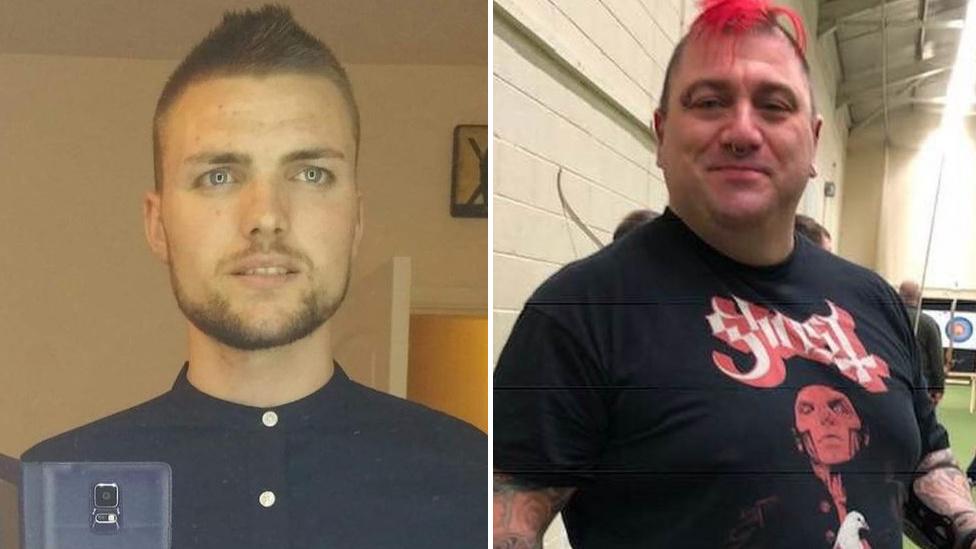
Alexandru Murgeanu (left) and Jason Mercer were killed in a crash on the M1 in South Yorkshire in 2019
Mrs Mercer has campaigned against the use of smart motorways since Mr Mercer died alongside Alexandru Murgeanu, 22, on a stretch of the M1 without a hard shoulder.
"[The government] keep doing review after review after review - in the meantime, people are still dying," she said.
"We don't need a raft of changes. We just need the hard shoulder back in every single instance."
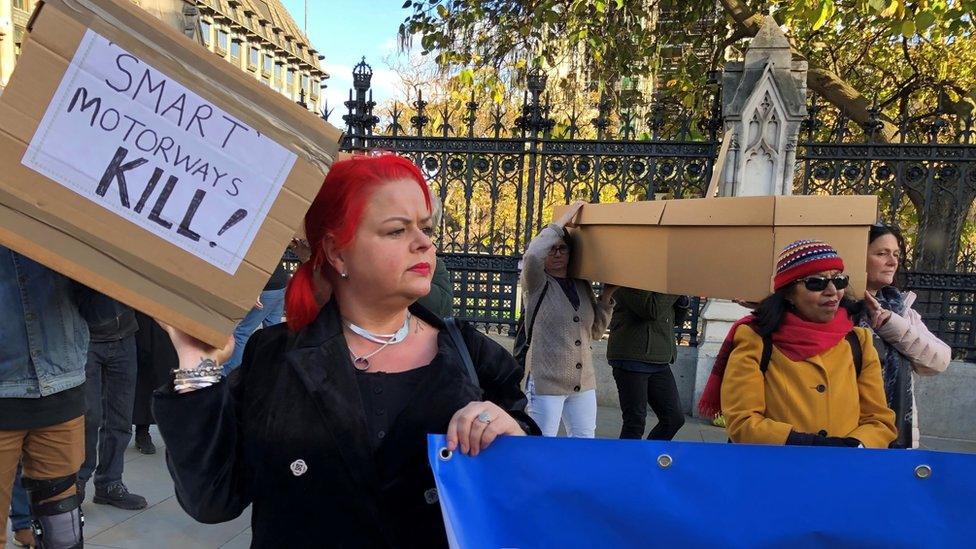
Claire Mercer, widow of Jason Mercer, says "we need to embarrass the government into actually doing something"
Janet Savage said she joined the demonstration after her experience when her car had a flat tyre on a smart motorway several months ago.
"We couldn't get off anywhere and it was the most terrifying thing in my life," she said.
"I don't ever want to get on one again, ever."
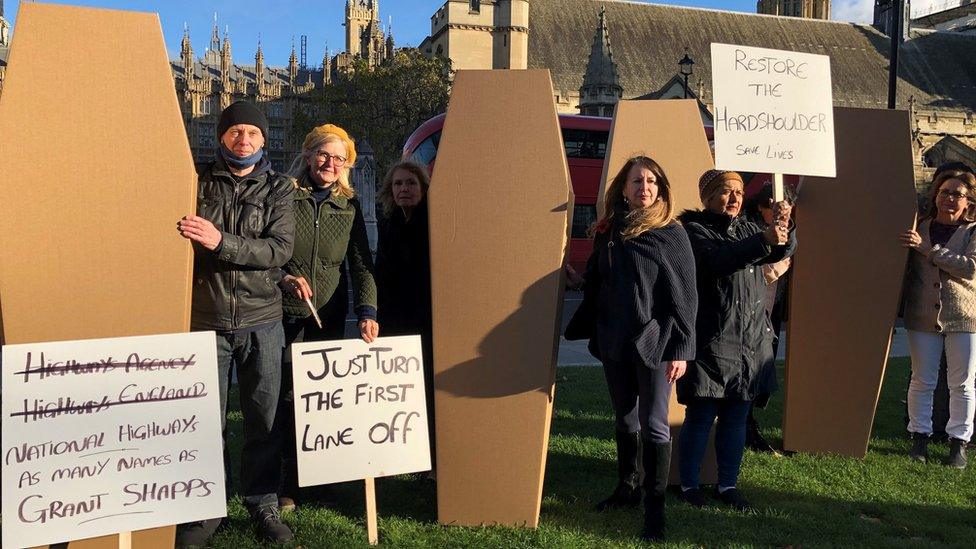
Protesters also carried placards with the slogans 'restore the hard shoulder save lives' and 'just turn the first lane off'
National Highways, the government-owned company responsible for England's motorways and major A roads, said the chance of death on smart motorways was less than on any other major road.
Nick Harris, its chief executive, said: "Safety remains our top priority and our motorways are the safest type of road in the country.
"We are determined to do all we can to help drivers feel safe and be safer on all our roads."
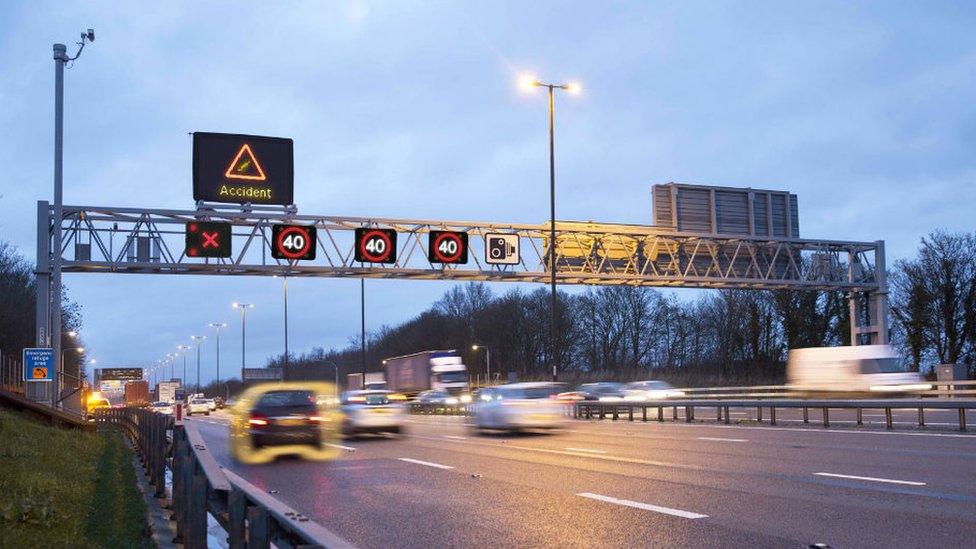
Smart motorways use technology to maintain the flow of traffic
The Commons Transport Select Committee is due to publish a report on Tuesday on the rollout and safety of smart motorways.
A Department for Transport spokesperson said: "Every death on our roads is a tragedy and our thoughts remain with anyone who has lost a loved one.
"We've tasked National Highways with implementing a raft of measures, including ensuring every new ALR motorway opens with technology to spot stopped vehicles."
Existing stretches of ALR motorway will be updated with this technology by September 2022, they added.

Follow BBC Yorkshire on Facebook, external, Twitter, external and Instagram, external. Send your story ideas to yorkslincs.news@bbc.co.uk or send video here.
Related topics
- Published26 October 2021

- Published7 April 2021
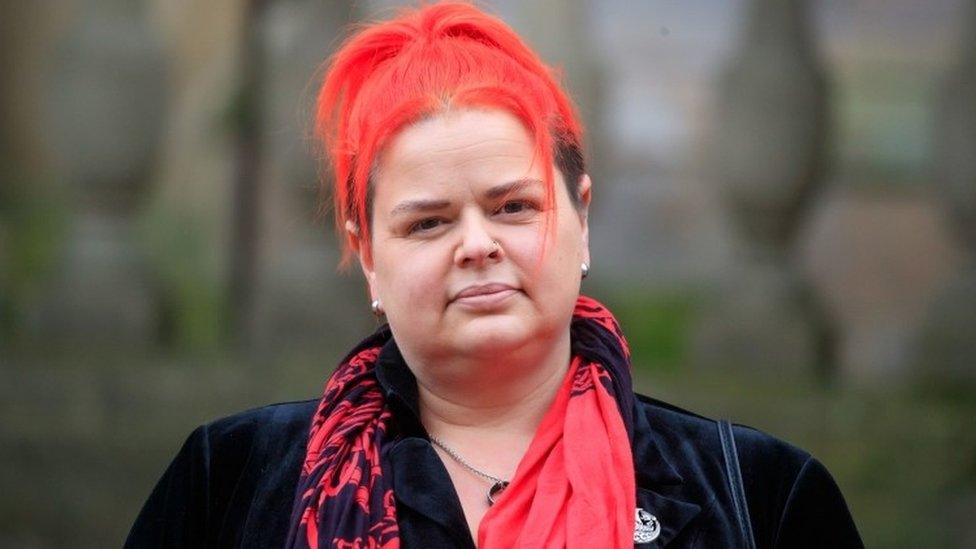
- Published12 March 2021

- Published2 March 2021
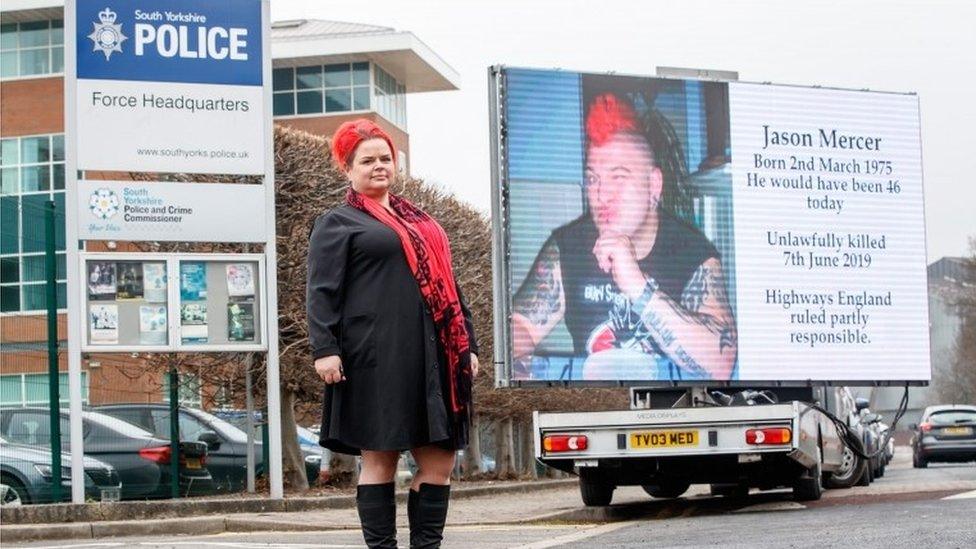
- Published19 January 2021

- Published18 January 2021

- Published23 November 2020
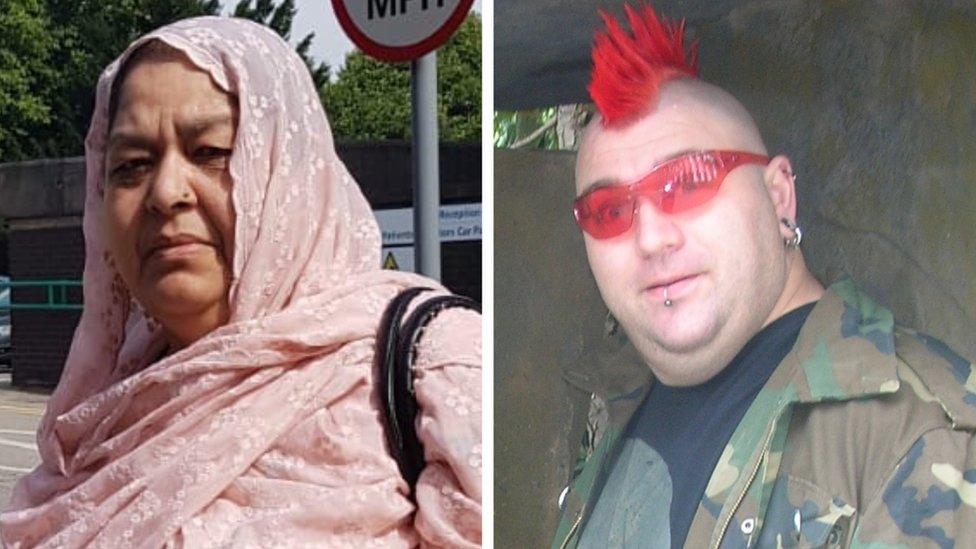
- Published19 October 2020
